Politics
Debunking the ‘Failed Businessman’ Myth: Trump’s Winning Record in Business
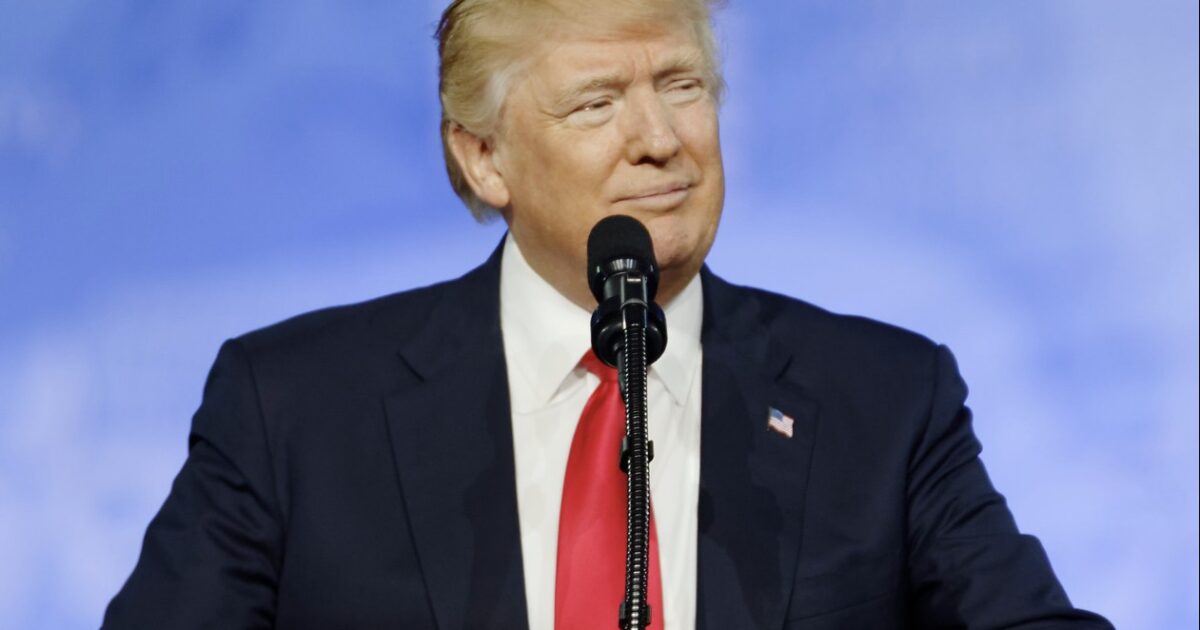
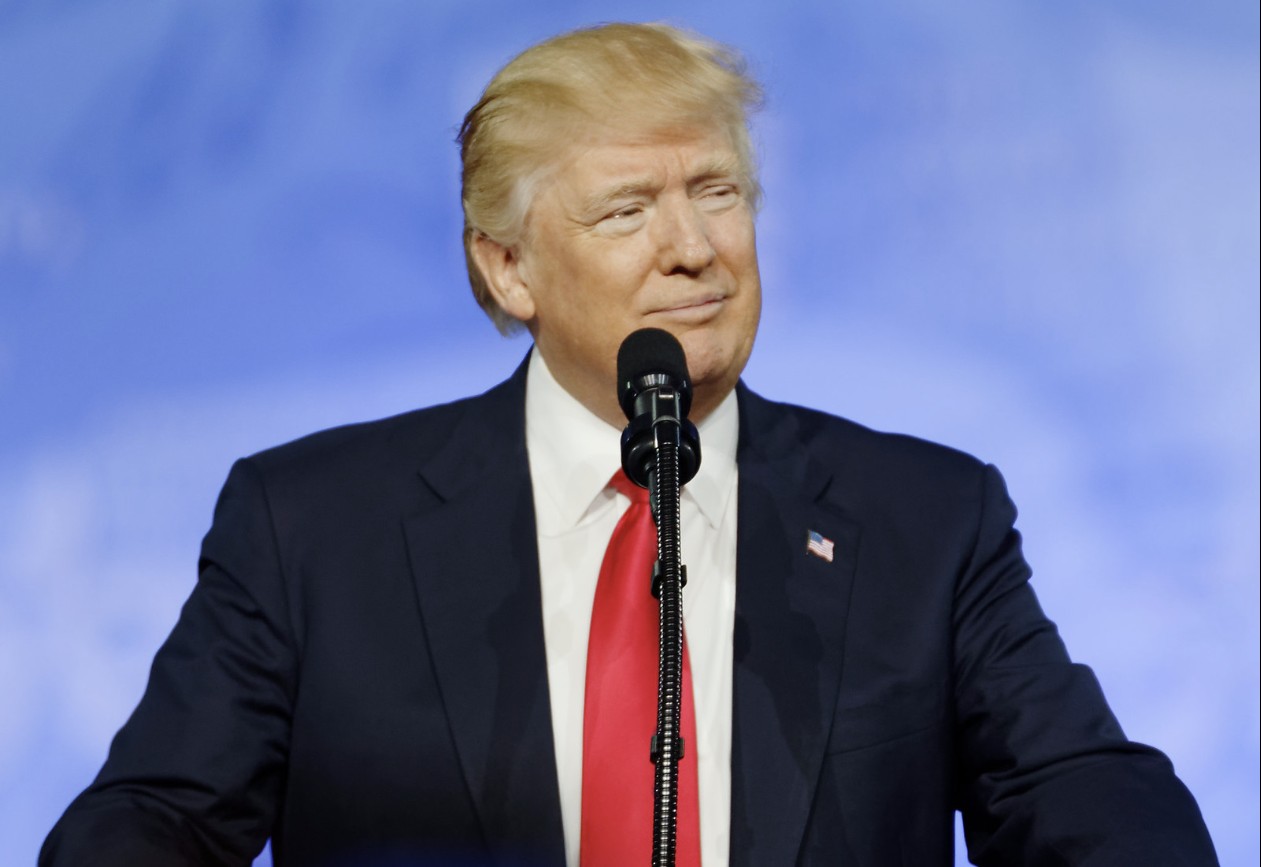 Donald J. Trump, Businessman. Photo courtesy of Michael Vadon via Flickr.
Donald J. Trump, Businessman. Photo courtesy of Michael Vadon via Flickr.
Critics across media and social platforms have repeatedly characterized Donald Trump as a “terrible businessman,” pointing to bankruptcies, failed ventures, and claims that his wealth is merely inherited rather than earned. These criticisms ignore the broader context of entrepreneurial business ventures and the substantial documented successes in Trump’s decades-long career. While no business career is without setbacks, the factual record demonstrates significant achievements which far outweigh his business failure. As of recent estimates, Trump’s net worth ranges from $5.1 to $7.08 billion, according to Forbes and Bloomberg.
Trump’s first major success came in the 1970s with the renovation of the Grand Hyatt Hotel, transforming the deteriorating Commodore Hotel into a profitable Manhattan landmark. The project established his reputation for identifying undervalued assets and executing high-impact renovations. His redevelopment of 40 Wall Street is especially notable: purchased for $1 million in 1995, renovated for $35 million, and now valued at over $500 million, a 50x return.
Trump Tower, completed in 1983, became his headquarters and remains a core asset. Trump Place, a massive Hudson River development with 18 buildings, 5,700 apartments, and 25 acres of open space, demonstrated his ability to execute large-scale projects. Trump International Tower Chicago was named North America’s best large city hotel in 2010. Beyond real estate, Trump succeeded across multiple sectors. He achieved a 90% success rate in stock investments, profiting from 40 of 45 trades before selling his portfolio in 2014. In 2011, Forbes valued the Trump brand at $200 million and his licensing business at $562 million, then described as his most valuable segment.
Today, 33 licensing projects and 20 branded developments are underway across nine countries, generating revenue without capital investment. He also owns 18 championship golf properties, described as “the greatest golf portfolio ever assembled by one man.” Trump further expanded his reach through media, earning $1 million per episode of The Apprentice, with total income from the show reaching $197.3 million between 2000 and 2018. His 1987 bestseller The Art of the Deal cemented his reputation as a national business figure.
While six Trump-linked companies filed for Chapter 11 bankruptcy between 1991 and 2009, these represent a small percentage of his total ventures and were all corporate bankruptcies, not personal. Each was a strategic restructuring aimed at avoiding liquidation while allowing continued operations and partial repayment of creditors. For example, the Trump Taj Mahal restructured $3 billion in debt in 1991; Trump gave up 50% ownership to bondholders, and the casino remained in operation. Trump Castle (1992) and the Trump Plaza Hotel (1992) both continued operating after Trump ceded equity stakes. In 2004, Trump Hotels & Casino Resorts filed with $1.8 billion in debt and emerged as Trump Entertainment Resorts. In each case, Chapter 11 was used as a legal tool to reorganize, not shut down, reflecting prudent corporate strategy rather than a financial failure.
Many commonly cited “failures” were actually licensing deals rather than Trump-operated businesses. Trump Steaks, sold through The Sharper Image in 2007, was a licensing deal where Trump was paid for his name usage without operational involvement or financial loss when discontinued. Trump Vodka, launched in 2006 by Drinks Americas as a branding deal, saw Trump profit from the licensing arrangement despite being discontinued in the U.S. Trump: The Game (1989), a board game by Milton Bradley that flopped commercially, earned Trump royalties as a licensing deal. Trump Magazine was a failed publication where Trump lent his brand but was not the publisher. GoTrump.com, a travel booking site operated in partnership with Travelocity, had no financial impact on Trump beyond lost branding potential when it closed.
In these licensing arrangements, Trump profited through fees regardless of the product’s commercial success, demonstrating the distinction between brand association and executive control. During 2000-2018, while Trump businesses had $174.5 million in losses, this was more than offset by income from licensing deals ($230 million) and television ($197.3 million), resulting in net positive returns. While Trump was more directly involved in promoting Trump University, the lawsuits and eventual $25 million settlement were civil, not criminal, and he was not found guilty of wrongdoing.
Claims that Donald Trump received extraordinary financial support from his father are inaccurate. The New York Times’ characterization of $60+ million in loans from Fred Trump as unusual misrepresents standard real estate development practices. In this industry, borrowing hundreds of millions from multiple sources, including banks, private lenders, and family members, is common. These were not gifts, but business loans typical of leveraged real estate deals. The loans critics cite were revolving credit facilities, standard tools used by real estate developers to finance large projects. Like any real estate mogul, Trump operated within this model as part of normal business operations.
When Fred Trump died in 1999, his estate was estimated by the family at $250 million to $300 million, according to The New York Times, while the New York Daily News reported a range of $100 million to $300 million. Despite speculation by The New York Times, there has never been any evidence that Donald received anything from his father’s estate.
While Trump’s business career includes both successes and failures, typical of any entrepreneur taking significant risks, the documented record contradicts claims that he is a “terrible businessman.” Over five decades, he has demonstrated substantial wealth creation, successful developments, and profitable ventures across multiple industries.
The post Debunking the ‘Failed Businessman’ Myth: Trump’s Winning Record in Business appeared first on The Gateway Pundit.
Politics
Black Lives Matter Activist in Boston Pleads Guilty to Federal Fraud Charges – Scammed Donors to Fund Her Lifestyle

Screencap of YouTube video.
A Black Lives Matter activist in Boston named Monica Cannon-Grant pleaded guilty to federal charges this week, admitting that she scammed donors and used their money to fund her own lavish lifestyle.
Cannon-Grant was previously held up as an admired figure. The city of Boston named her the Bostonian of the year at one point for her ‘social justice activism’ and she was even recognized by the Boston Celtics basketball team for her efforts.
She is now facing a minimum of two years in prison.
The New York Post reports:
BLM-linked activist admits conning donors to fund her lavish lifestyle
A once-celebrated Boston social activist has pleaded guilty to defrauding donors — including Black Lives Matter — out of thousands of dollars that she used as a personal piggy bank.
Monica Cannon-Grant, 44, pleaded guilty Monday to 18 counts of fraud-related crimes that she committed with her late husband while operating their Violence in Boston (VIB) activists group, according to the US Attorney’s Office in Massachusetts.
The activist scammed money — including $3,000 from a BLM group — while claiming it was to help feed children and run protests like one in 2020 over the murder of George Floyd and police violence.
Cannon-Grant also conned her way into getting $100,000 in federal pandemic-related unemployment benefits — which she used to pay off her personal auto loan and car insurance policy.
But she has now confessed to transferring funds to personal bank accounts to pay for rent, shopping sprees, delivery meals, visits to a nail salon — and even a summer vacation to Maryland.
Just amazing.
Monica Cannon-Grant stole from donors, scammed the government, and lived it up while preaching about oppression. BLM grift is the only nonprofit where fraud is part of the mission statement. https://t.co/ir3q9lqYrh
— Matthew Newgarden (@a_newgarden) September 23, 2025
BREAKING: BLM activist Monica Cannon-Grant pleads guilty to 27 fraud charges, misusing over $1M from Violence in Boston for personal gain. Echoes Sir Maejor Page’s $450K scam conviction. A wake-up call for nonprofit accountability. pic.twitter.com/N9vvD369gB
— (@pr0ud_americans) September 14, 2025
Here’s a local video report:
She should pay back every penny.
The post Black Lives Matter Activist in Boston Pleads Guilty to Federal Fraud Charges – Scammed Donors to Fund Her Lifestyle appeared first on The Gateway Pundit.
Politics
Keith Olbermann Backpedals Furiously With Apology for Threatening CNN’s Scott Jennings – Jennings Responds (VIDEO)
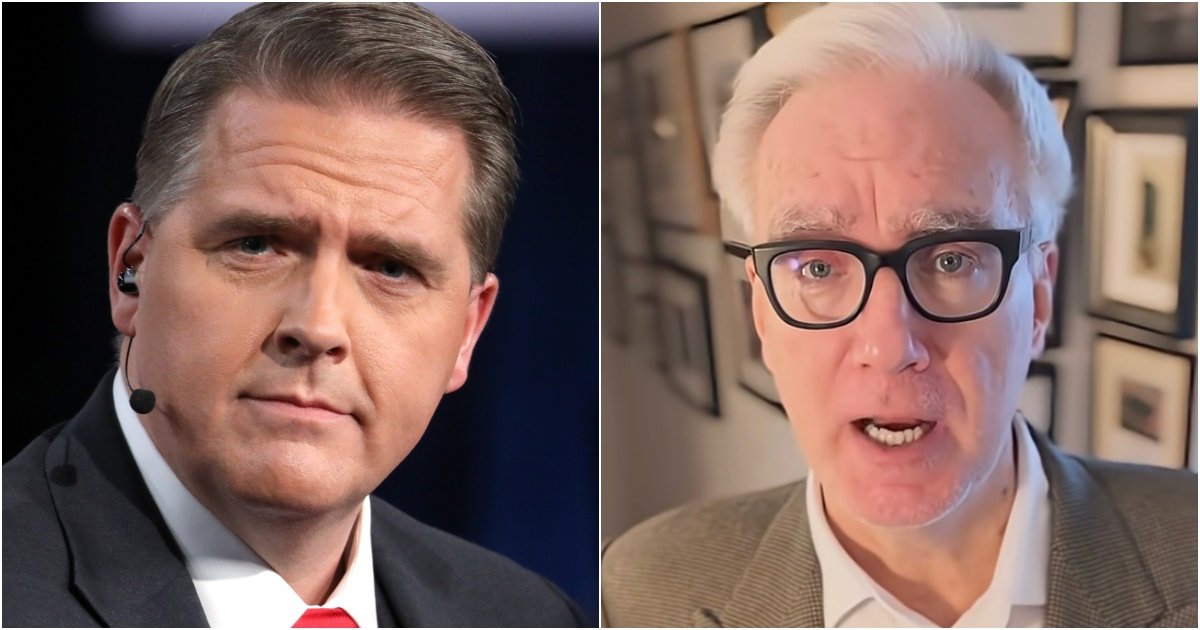
As the Gateway Pundit reported yesterday, former MSNBC host and generally unhinged leftist Keith Olbermann, appeared to threaten CNN’s conservative pundit Scott Jennings on Twitter saying, ‘You’re next motherf**ker.’
Well, Olbermann may have gotten a phone call or a visit from the FBI because today he walked back those comments with a full-throated apology.
RedState has an update:
To quickly recap, Scott Jennings, a Salem Media Network radio host and conservative CNN political commentator, reacted to breaking news on Monday that Kimmel had been reinstated by tweeting, “So basically his employer suspended him for being an insensitive pr**k, and we don’t live in an authoritarian regime? Got it.”
This enraged Olbermann, who proceeded to tweet what many, including Jennings, perceived to be a threat. “You’re next, motherf**ker. But keep mugging to the camera.” Jennings tagged Patel and included a screengrab of the tweets in response.
Though the FBI hasn’t commented as to whether an investigation was launched, Olbermann ostensibly appears to have thought twice about what he tweeted and deleted, apologizing profusely in tweets posted on Tuesday and claiming what he wrote was “misinterpreted”:
See Olbermann’s tweet below:
I apologize without reservation to @ScottJenningsKY
Yesterday I wrote and immediately deleted 2 responses to him about Kimmel because they could be misinterpreted as a threat to anything besides his career. I immediately replaced them with ones specifying what I actually meant. pic.twitter.com/SPWLb73nEk
— Keith Olbermann (@KeithOlbermann) September 23, 2025
I oppose and condemn political violence, and the threat of it. All times are the wrong time to leave even an inadvertent impression of it – but this time is especially wrong
I should've acknowledged the deletion and apologized yesterday. I'm sorry I delayed.
— Keith Olbermann (@KeithOlbermann) September 23, 2025
Scott Jennings, always a class act, offered this hilarious response:
SCOTT JENNINGS: “Marking myself SAFE from that NUT, Keith Olbermann!” pic.twitter.com/EYZX6vm5Oh
— Dustin Grage (@GrageDustin) September 23, 2025
Keith Olbermann really needs help. The guy is just so out of control.
The post Keith Olbermann Backpedals Furiously With Apology for Threatening CNN’s Scott Jennings – Jennings Responds (VIDEO) appeared first on The Gateway Pundit.
Politics
Where is Lance Twiggs? Kirk Assassin’s Transgender Lover Has Vanished

 Charlie Kirk assassin Tyler Robinson and roommate Lance Twiggs
Charlie Kirk assassin Tyler Robinson and roommate Lance Twiggs
Charlie Kirk assassin Tyler Robinson lived with his transgender partner – a male-to-female trans named Lance “Luna” Twiggs.
The FBI used Robinson’s texts with his transgender partner to solidify that Robinson was the assassin. Lance Twiggs has not been charged with any crime; however, federal authorities are still investigating.
Last week, Utah authorities released the text exchange between Tyler Robinson and his transgender lover, Lance Twiggs, sent shortly after Kirk’s assassination.
Utah County District Attorney Jeff Gray announced seven charges against Charlie Kirk assassin Tyler Robinson. They will also be seeking the death penalty.
Robinson was charged with:
– Count 1: Aggravated murder (capital offense)
– Count 2: Felony reckless discharge of a firearm causing bodily injury
– Count 3: Felony obstruction of justice for hiding the firearm
– Count 4: Felony obstruction of justice for discarding the clothing he wore during the shooting
– Count 5: Witness tampering for asking roommate to delete incriminating messages
– Count 6: Witness temperating for demanding trans roommate stay silent, and not speak to police
– Count 7: Commission of a violent offense in the presence of a child
Jeff Gray released the chilling texts between Tyler Robinson and his “love” Lance Twiggs.
Read the text exchange here:
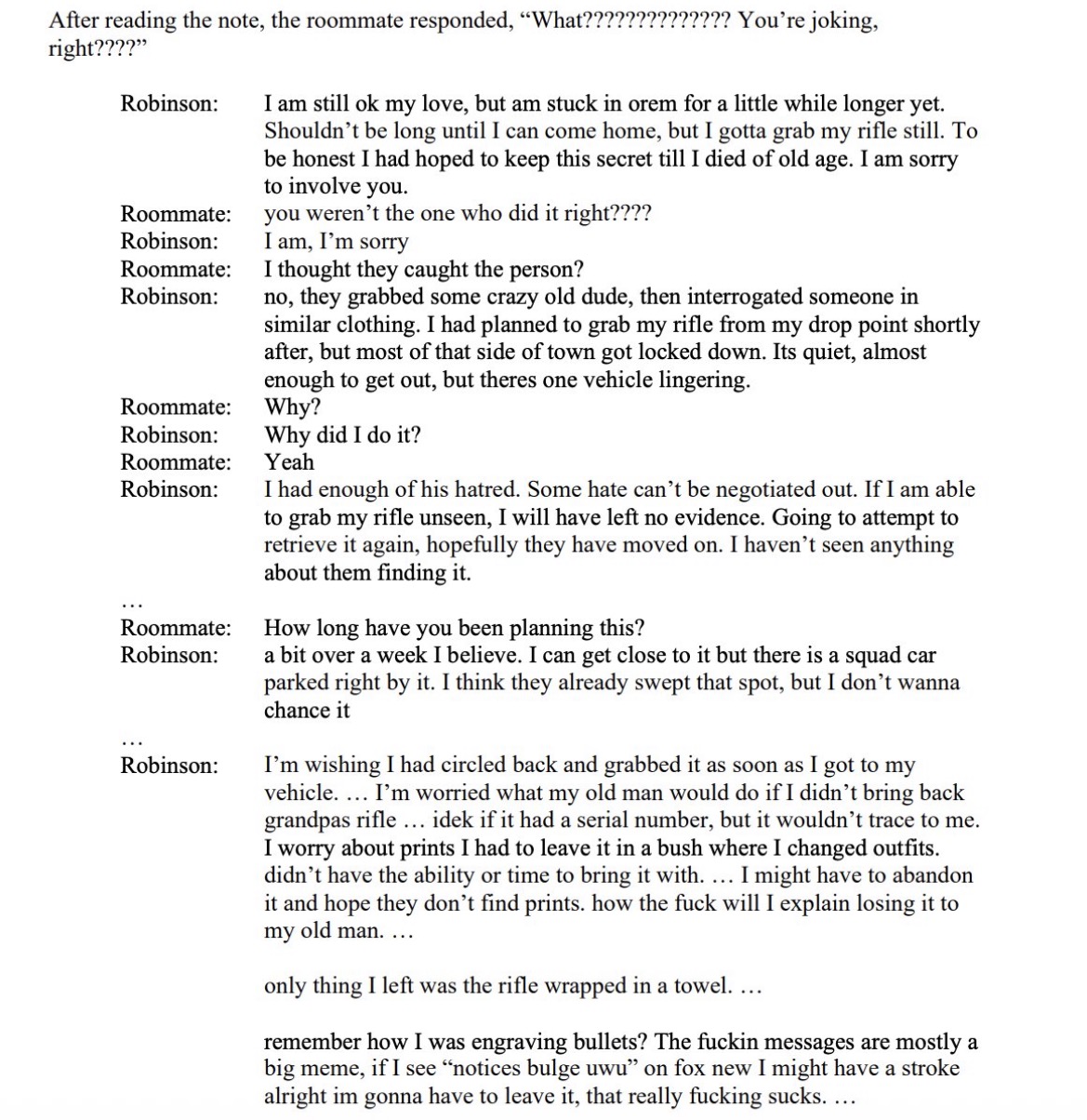 Tyler Robinson texts with transgender lover Lance Twiggs / 1
Tyler Robinson texts with transgender lover Lance Twiggs / 1
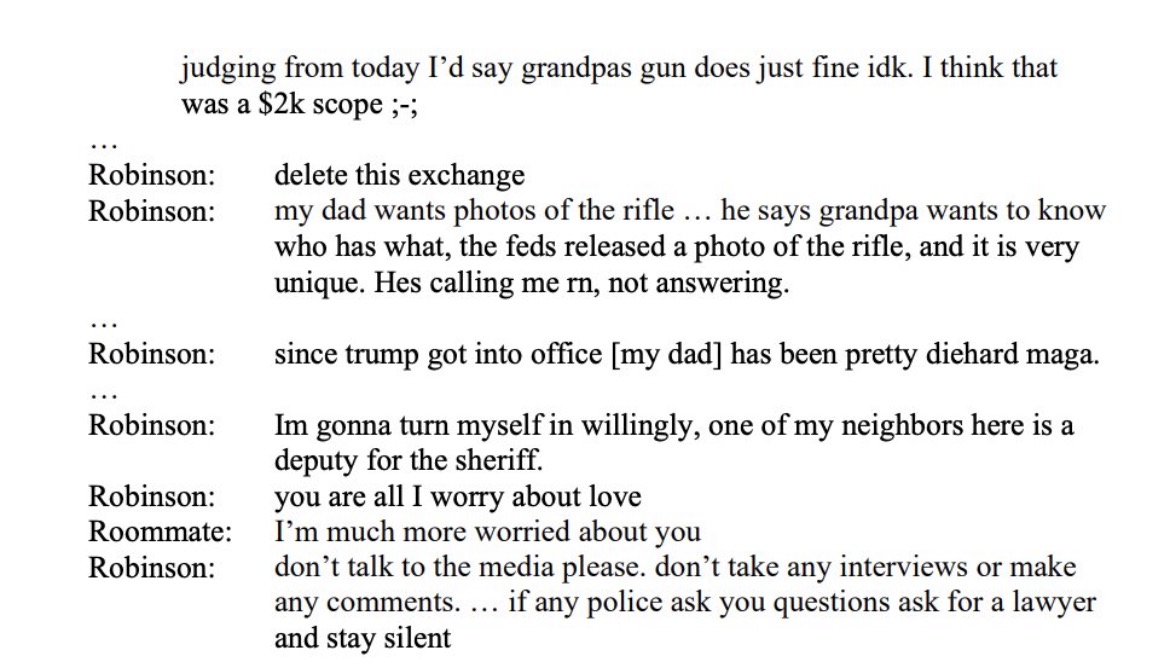 Kirk assassin Tyler Robinson texts with transgender lover Lance Twiggs / 2
Kirk assassin Tyler Robinson texts with transgender lover Lance Twiggs / 2
Lance Twiggs was reportedly cooperating with the FBI, however, according to the Daily Mail he has seemingly vanished.
“If [Lance Twiggs] ever comes back, it will be in a body bag,” a neighbor said to the Daily Mail. “That’s not a threat – I’m just saying that there are so many people who want a piece of him he’d be mad to show his face in public again. This was a generational event.”
The Daily Mail reported:
The Trans boyfriend of Charlie Kirk’s alleged assassin has fled their former lovenest – and locals tell the Daily Mail they never want to see him again.
Lance Twiggs, 22, was led away for questioning when police swooped on the smart three-bed condo he shared with accused gunman Tyler Robinson, 22.
Shaken neighbors say the part time plumber has not been back to the $320,000 property in St. George, Utah – one declaring: ‘Good riddance. I never want to see either of them again.’
His beaten-up Infinity compact is still parked in his space with his work gear tossed across the back seat and a sandwich wrapper and a drink on the front passenger seat.
Upstairs lights have been left on for more than a week and notes and Amazon packages are piling up outside the home owned by Twiggs’s devout Mormon family.
The post Where is Lance Twiggs? Kirk Assassin’s Transgender Lover Has Vanished appeared first on The Gateway Pundit.
-

 Entertainment6 months ago
Entertainment6 months agoNew Kid and Family Movies in 2025: Calendar of Release Dates (Updating)
-

 Entertainment3 months ago
Entertainment3 months agoBrooklyn Mirage Has Been Quietly Co-Managed by Hedge Fund Manager Axar Capital Amid Reopening Drama
-
Tech6 months ago
The best sexting apps in 2025
-

 Entertainment5 months ago
Entertainment5 months agoKid and Family TV Shows in 2025: New Series & Season Premiere Dates (Updating)
-

 Tech7 months ago
Tech7 months agoEvery potential TikTok buyer we know about
-
Tech7 months ago
iOS 18.4 developer beta released — heres what you can expect
-

 Tech7 months ago
Tech7 months agoAre You an RSSMasher?
-

 Politics7 months ago
Politics7 months agoDOGE-ing toward the best Department of Defense ever



